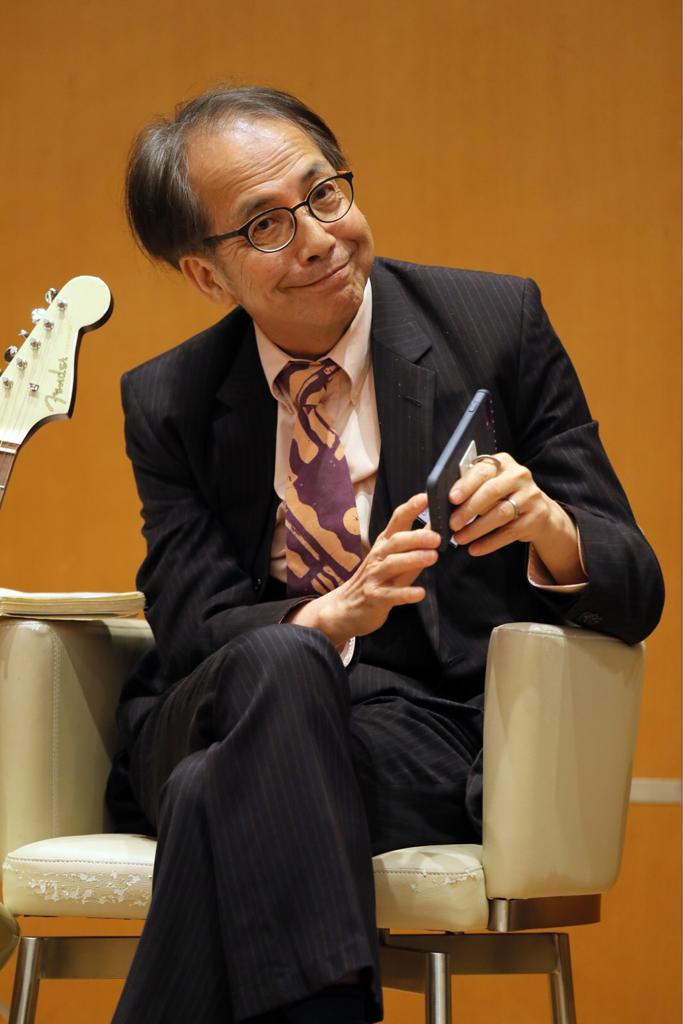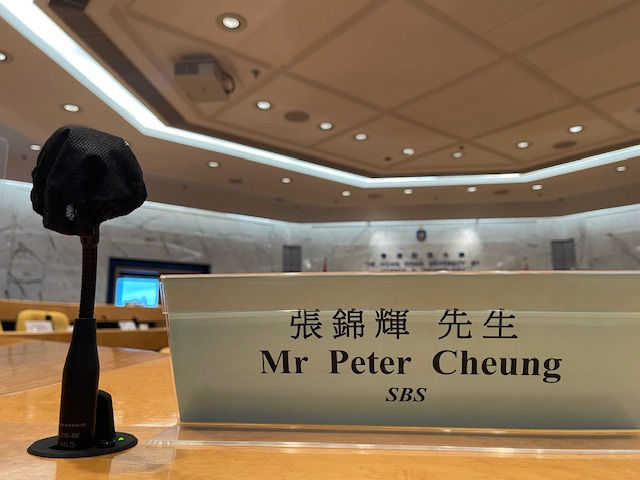Live Concerts
- Peter K F Cheung SBS

- Apr 22, 2023
- 3 min read
FADE IN
Act 1
INT. CONCERT HALL - 19:50
Entrance. PETER and his WIFE appear, among other AUDIENCE.
PETER: We're watching a double concertos for clarinet and viola.
Peter gives a ticket to his wife, keeping the other one for himself.
WIFE: Why?
PETER: Mine is a senior citizen ticket.
PETER (V.O.): For live concerts arranged by my wife, there's no concession to senior citizens.
Pausing.
PETER (V.O.) (Cont'd): Tonight, my wife is kind enough to accompany me to show some support to the performance. I know some of the personnel.
Pausing.
PETER (V.O.) (Cont'd): Otherwise, we wouldn't come.
Act 2
INT. CONCERT HALL - LATER
We hear and see the double concertos. After a cadence, the ORCHESTRA stops playing.
PETER (V.O.): Is that a long pause of a movement or the end of the musical piece?
As some audience applaud, the CONDUCTOR gestures to stop with her left hand and resumes conducting.
PETER (V.O.) (Cont'd): It's always difficult to distinguish the difference between a long pause and the end as they sound similar.
Pausing.
PETER (V.O.) (Cont'd): Even if the audience have the program's sheet music, not all can read it.
Later, the orchestra stops playing again. This time, the orchestra changes its posture and the conductor leaves her podium.
PETER (V.O.) (Cont'd): This signifies the end of the piece.
Immediately, we hear a round of big applause.
WIFE: It's intermission! Let's stretch our legs a little and go to the toilet.
They walk out.
PETER: How did you find the musical piece just played?
WIFE: Exercising my best endeavours, I've been awake throughout.
PETER: I felt the hypnotic sleepiness too.
PETER (V.O.): The slow and meditative pace of the piece has created a calming and relaxing atmosphere.
PETER (Cont'd): I once tried to play the violin and found it very easy to play badly.
Walking.
PETER (Cont'd): For the clarinet, I used to be able to play the song "Stranger On the Shore".
.
Recalling.
PETER (V.O.): A housing colleague of mine was also a part-time clarinet member of an orchestra. He taught me how to play it. That was in the late 1970s.
They go to the toilet.
PETER (V.O.) (Cont'd): Although I had some experience in playing the musical instruments, live concerts of western music don't appeal to me too.
Pausing.
PETER (V.O.) (Cont'd): Furthermore, I don't like using a key eg "Key Eb", or a number eg "Work #52" to identify a musical work.
Thinking.
PETER (V.O.) (Cont'd): My wife and I don't have any musical training, not to mention our Asian cultural background and our preference for popular music.
Later, as the orchestra stops performing, we see and hear non-stop applauding.
PETER (V.O.) (Cont'd): This is the conventional encore time - a live concert ritual that I don't like as I don't know how genuine is it.
We see the star PERFORMERS, having complemented each other and bowed to the audience, leaving the stage.
PETER (V.O.) (Cont'd): I'm sure they'll return soon.
As the star performers return, they and the audience repeat their actions.
PETER (V.O.) (Cont'd): I feel particularly sorry for the star performers as they've to bow so many times while the audience's clapping can be optional.
A SOLOIST then plays a small piece, as the rest of orchestra waits on stage. When the performance ends, we hear a loud applause.
PETER (V.O.) (Cont'd): Haven't all had enough? The day is done for all.
Sensing that the concertos have really come to an end, the audience and the performers can't wait to leave.
Act 3
INT. CONCERT HALL - CONTINUOUS
Exit. Following other audience, Peter and his wife leave.
PETER (V.O.): Live concerts can be pleasurable because of the chemistry that's generated in audience and on stage.
Pausing.
PETER (V.O.) (Cont'd): But I find live concerts exciting and delightful only when I'm performing my original works on stage.
Pausing.
PETER (V.O.) (Cont'd): What I want to showcase isn't my musical skill or judgment, but anyone can be creative.
FADE OUT
THE END






Comments